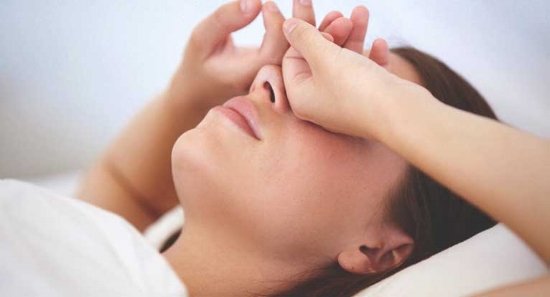Natural Remedies for Insomnia
How to Treat Insomnia Naturally
Sleep. It's one of the most effective methods in the world for healing and rejuvenating your mind and body. Sleep plays an essential role in our immune function, our metabolism - even the way that we learn. So it's no small wonder that sleep disorders like insomnia can be extremely disruptive to our everyday lives. The American Sleep Association reports that sleep disorders affect between 50 and 70 million adults in the United States.
The causes? Varied and complex. Our natural sleep cycle can be interrupted by a number of circumstances including emotional disorders, physical ailments, our environment - or even genetics. And if you're determined to avoid taking the medication route to get more sleep, you may want to consider some natural remedies for insomnia that have proven to be a bit more effective than counting sheep. Research suggests that complementary and alternative approaches can be quite effective.
MELATONIN
One of the most widely studied compounds for sleep, melatonin has been shown to be a relatively effective remedy for sleeplessness. It's a hormone that's naturally produced in the body and plays a vital role in regulating our sleep-wake cycle. Age, illness, and other factors can reduce the amount of melatonin that we produce. Research shows that a melatonin supplement may help people with insomnia fall asleep slightly faster and can also help to adjust circadian rhythms.
VALERIAN
Valerian is known for its calming effects and is often used in combination with other herbs to help not only with sleep problems but also with anxiety, restlessness, and irritability. It works to "quiet" the nervous system, which can leave you feeling more calm and relaxed. In randomized studies, 63% of participants using Valerian reported significant improvements in sleep patterns.
ACUPUNCTURE
Acupuncture can be effective in helping to resolve chronic pain, improve digestion, and yes - improve sleep. Why? Acupuncture therapy seems to activation of the self-healing mechanisms in the body. A review by Cao and colleagues found that acupuncture appeared to be effective in reducing insomnia.
MEDITATION
Mindfulness meditation has shown some promising results in sleep disorders when used as part of cognitive therapy. A JAMA Internal Medicine study followed nearly 50 adults who had trouble sleeping. A portion of the group worked on a mindfulness awareness program that included meditation and other exercises. The others participated in a sleep education class. At the end of the trial, the mindfulness group reported significantly less insomnia, fatigue, and depression.
GETTING HELP
Holistic treatment for insomnia can incorporate several modalities including herbal supplements, lifestyle changes, behavioral therapy, meditation, mind-body therapy and much more. For lasting results, aim to get at the underlying causes of your sleep problems rather than just treating the symptoms. Need help? Consider consulting with a qualified psychotherapist or psychiatrist, who can guide you toward the best approach for your overall health and sleep.


